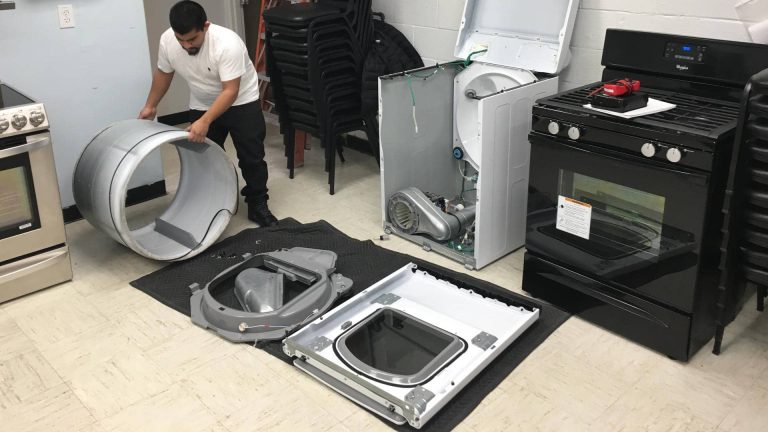Negotiating Like a Pro: Tips for Lafayette Sellers
Selling a home can be a complex process, especially when it comes to negotiations. As a seller in Lafayette, you need to be prepared to navigate the intricacies of offers, counteroffers, and concessions to ensure you get the best possible deal. Here are some expert tips to help you negotiate like a pro and maximize the value of your property.
Understand the Local Market
Before you begin negotiations, it’s crucial to have a thorough understanding of the local Lafayette real estate market. Knowing the average home prices, the typical time homes spend on the market, and the current demand can give you a significant advantage. Conduct a comparative market analysis (CMA) or consult with a real estate agent to get accurate data. This information will help you set a realistic asking price and give you leverage during negotiations. Remember, an informed seller is a powerful seller.
Being knowledgeable about the market also means understanding seasonal trends. For instance, homes in Lafayette might sell faster in spring and summer compared to winter. Knowing these patterns allows you to time your listing to coincide with peak buying periods, potentially leading to multiple offers and a stronger negotiating position. Additionally, staying updated on economic factors such as interest rates can help you anticipate buyer behavior.
Set a Competitive but Realistic Price
Pricing your home correctly is one of the most critical aspects of selling. A price that is too high can deter potential buyers, while a price that is too low can leave money on the table. Start with the value determined by your CMA and consider the condition and unique features of your property. While it’s tempting to set a high price with the expectation of negotiating down, this strategy can backfire. Overpriced homes often sit on the market longer, leading buyers to question what’s wrong with the property.
Instead, aim for a competitive yet realistic price. This approach can attract more buyers and potentially lead to a bidding war, driving up the final sale price. Be prepared to justify your asking price with data and be open to professional appraisals. Remember, buyers today are well-informed and will likely have done their research. Being reasonable and transparent about your pricing can foster trust and smoother negotiations.
Be Prepared to Make Concessions
In any negotiation, there’s give and take. As a seller, being prepared to make certain concessions can facilitate a quicker and more amicable deal. Common concessions include paying for part of the closing costs, offering a home warranty, or being flexible with the move-in date. While these might seem like minor points, they can be significant to buyers and can make your property more attractive compared to others.
Consider what concessions you’re willing to make before negotiations begin. Knowing your bottom line and what you can afford to compromise on helps prevent making hasty decisions under pressure. For example, if a buyer requests a price reduction, you might counter by offering to cover some closing costs instead. This way, you maintain your asking price while still providing value to the buyer.
Master the Art of the Counteroffer
Rarely will the first offer you receive be the one you accept. Most negotiations involve counteroffers, where both parties adjust terms until they reach an agreement. When you receive an offer, review it carefully and respond promptly. If the offer is lower than expected, don’t be discouraged. Instead, craft a strategic counteroffer that addresses your priorities while considering the buyer’s interests.
Your counteroffer should be backed by solid reasoning. For example, if you counter with a higher price, explain why your home is worth more based on comparable sales or recent upgrades. Be professional and courteous in your communication, as maintaining a positive relationship with the buyer can keep negotiations on track. Remember, the goal is to reach a win-win situation where both parties feel satisfied with the outcome.
Leverage Professional Help
Negotiating the sale of your home can be daunting, especially if you’re not familiar with real estate transactions. This is where professional help can be invaluable. A skilled real estate agent or attorney can guide you through the process, provide market insights, and handle negotiations on your behalf. Their experience and expertise can help you avoid common pitfalls and secure the best possible deal.
Consider working with a reputable real estate agency or a specialized house-buying company like Cedar Cash Home Buyers (https://www.cedarcashhomebuyers.com/), known for their fair and swift transactions. Professionals can also assist with the paperwork and legal aspects of the sale, ensuring everything is in order and protecting your interests. Remember, investing in professional assistance can often pay off by resulting in a higher sale price and a smoother selling experience.
Stay Calm and Patient
Negotiations can be stressful, but maintaining a calm and patient demeanor is essential. Buyers may make low offers, request numerous inspections, or have other demands that can test your patience. However, reacting emotionally or hastily can lead to unfavorable outcomes. Take your time to consider each offer and counteroffer carefully, and don’t be afraid to seek advice from your real estate agent or attorney.
Patience also means being willing to walk away if the deal doesn’t meet your needs. While it’s important to be flexible, you shouldn’t feel pressured to accept terms that compromise your goals. Sometimes, holding out for a better offer can lead to a more favorable outcome. Trust your instincts and the advice of your professionals, and remember that the right buyer is out there.
Conclusion
Successfully negotiating the sale of your Lafayette home requires preparation, knowledge, and strategic thinking. First, research your local market to set a competitive yet realistic asking price. Be prepared to make some concessions, but be well-versed in crafting counteroffers to maximize your profit. Consider leveraging a professional like a real estate agent who can guide negotiations and advocate for your best interests. Remember, patience is key. By following these steps, you can navigate the complexities of negotiations with confidence and achieve a successful and profitable sale, regardless of whether you choose to work with an agent or a real estate company. This approach ensures you enter negotiations informed, empowered, and ready to secure the best possible outcome.





